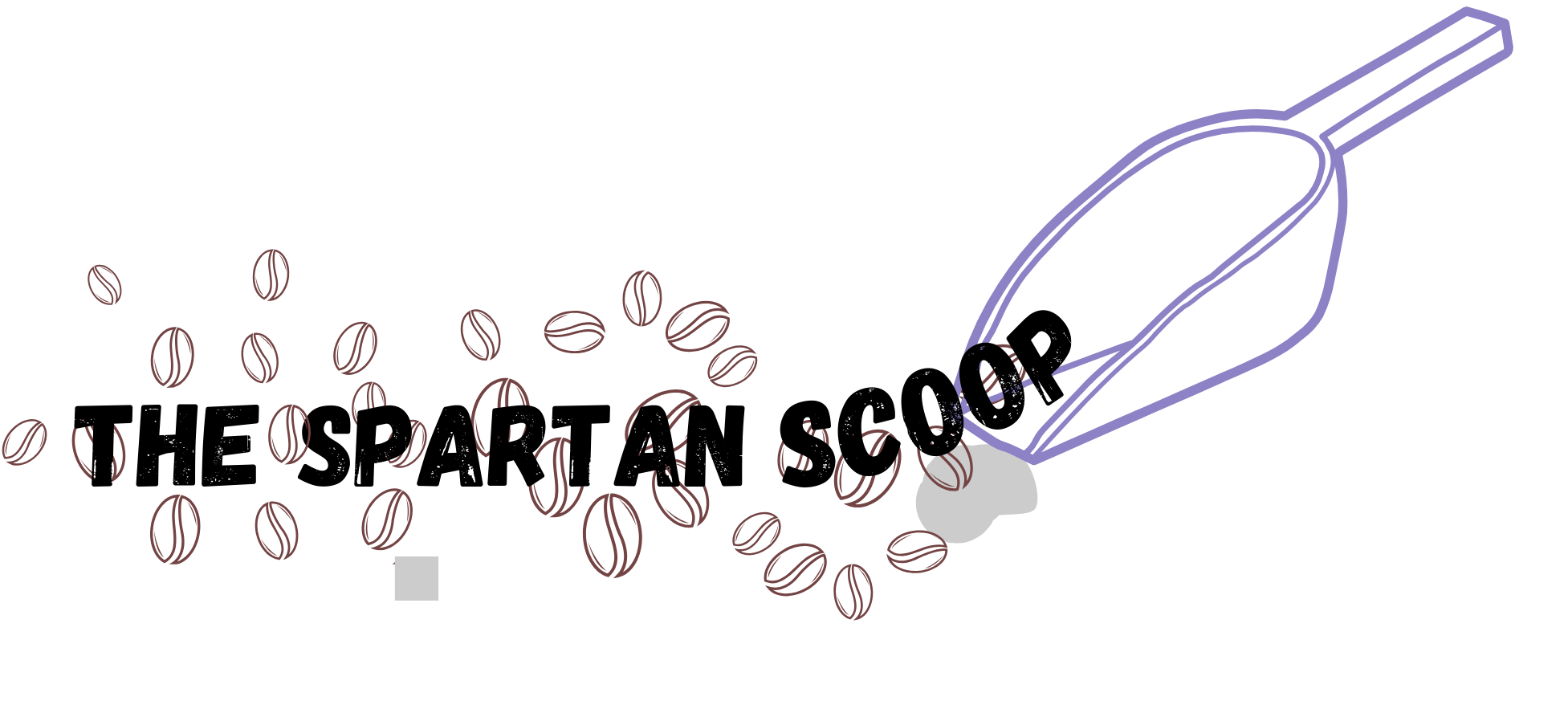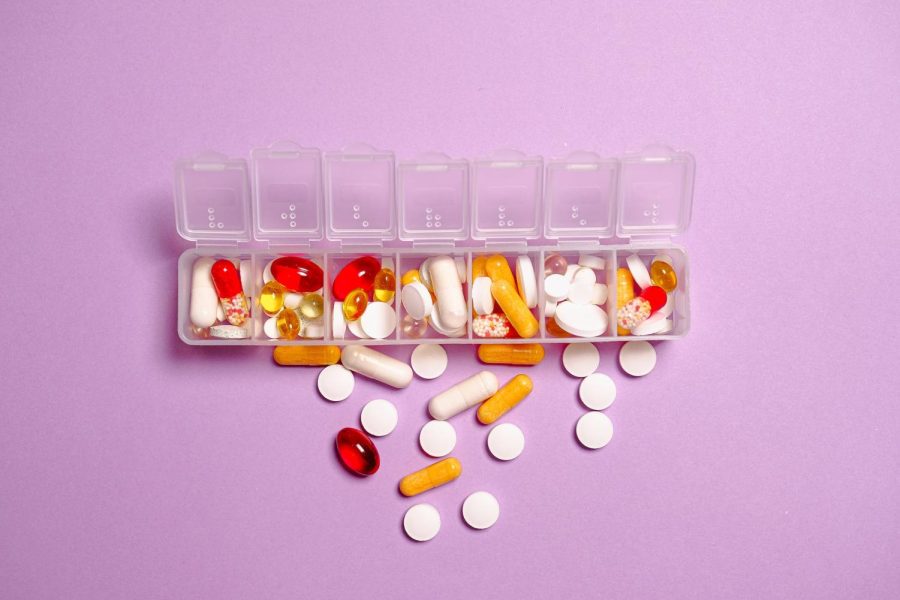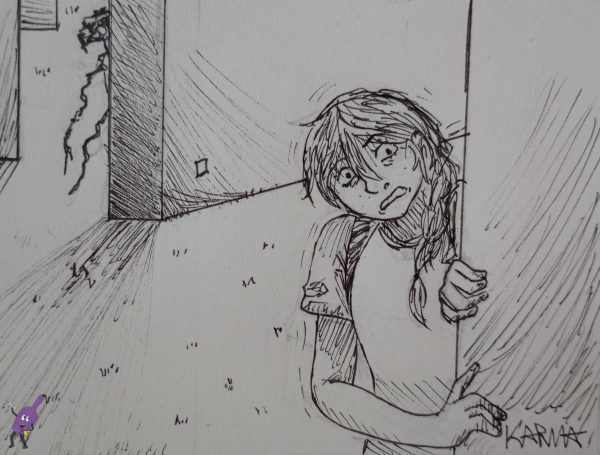IS SELF DIAGNOSIS A BAD THING?
People continue to debate whether or not self-diagnosis is valid.
A purple background with an assortment of pills.
Self-diagnosis, by definition, is the process of diagnosing oneself with a certain medical condition (often without the help of a professional). Medical books and resources can be used to aid in the diagnosis, but sometimes it is done by researching online. Regardless, the topic is something that is debated back and forth online. Some believe that self-diagnosing can be a beneficial thing, while others view it as something that diminishes the struggles of people with medical diagnoses. As with anything, there can be good and bad with something as specific as a diagnosis
First, the good things: there are many ways one can aid in their search for a proper diagnosis. Hospital bills are no small fee, and that’s something to which anyone without free healthcare can attest. Sometimes, doing research and coming to conclusions that one has certain medical conditions may be the only option they have. The Mayo Clinic and WebMD have free-to-use sources online that can be used to “self-diagnose”, however these are more aimed at physical illnesses.
And what does the general public think about self-diagnosis? The conversation for both sides is mostly carried out on Twitter. One person posted “Self-diagnosis is so important and needs to be acknowledged and respected. Especially for marginalized, disabled, and chronically ill folks,” in response to another post, now unavailable.
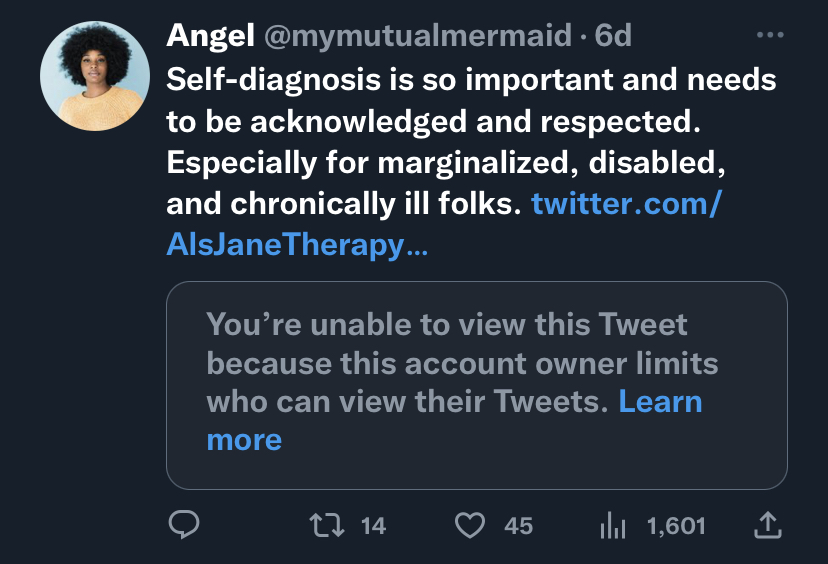
Another tweet, which has gotten more popular, says “No more ‘is self diagnosis valid’ discourse. I want a ‘are psychiatrists valid’ discourse because I have concerns,” which has received a large number of comments and retweets showing support for the statement.
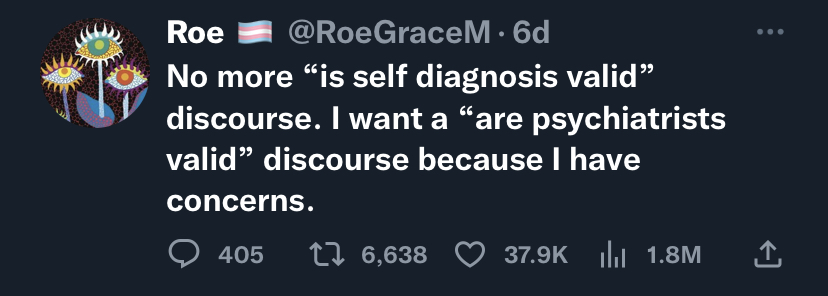
Now, what are the bad things about self-diagnosis? Sometimes, if one diagnoses themself with a specific illness or disability (and it ends up not being the correct condition), they could receive improper treatment (Highland Springs Clinic). One can never be so sure about something as large as a medical condition without getting the proper diagnosis by a doctor. Additionally, with the rise of platforms like TikTok, which can share anything with a few clicks and be spread to millions of people, people can be misled. Hashtags like “ADHD” and “Autism” and “Anxiety” have billions of views on the platform. One could see a post about symptoms of mental illness and be led to think they have that condition…whether intentional by the poster or not.
Some people online are very critical of self-diagnosing. One person has said, in response to a TikTok video, “It’s not cute being manic. It has ruined my life. Stop acting like you have this… [through] self diagnosis. It hurts the people who need treatment.”

Another person on the platform said “You go to the doctor based off of a suspicion you have and the doctor (somebody qualified) confirms your suspicion with a diagnosis. This isn’t the same as a self diagnosis, which is a suspicion ‘confirmed’ by you (usually not qualified).

Ultimately, self-diagnosing is something that will continue to be debated. Some people will see good in it, while others will see bad. It’s something that is often brought up online all of the time, enough to have gotten the attention of numerous medical professionals.
